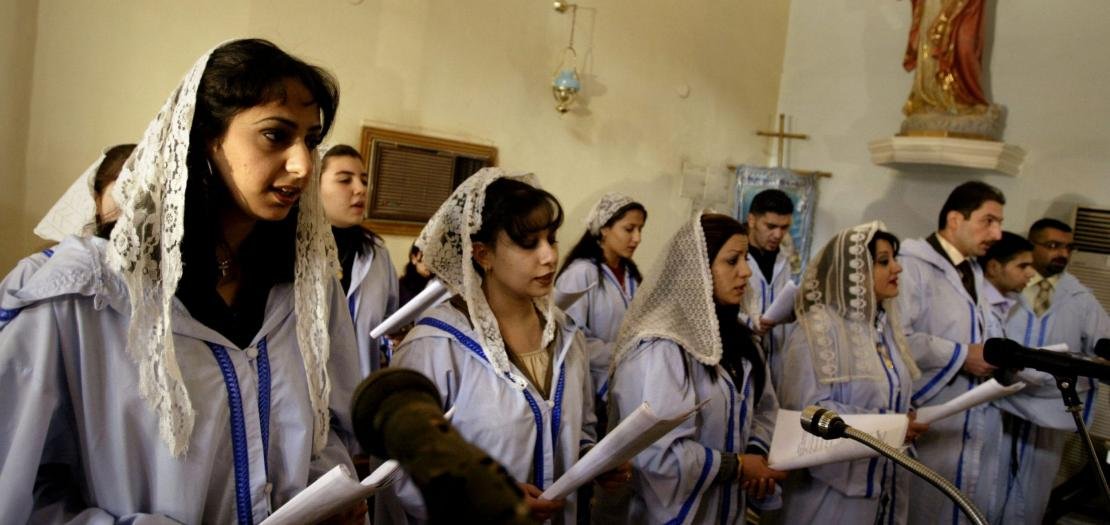August 7, 2014... an indelible date in the modern history of Iraq
By Munir Bayouk/ en.abouna.org:
August 7, 2014 was a bleak day for the Christian Iraqis. It was a day when the chains of evil broke loose with sinister outcome driving thousands of people out of their homes--a matter unfamiliar in modern time--as well as causing a loss of life or rather leading to a doomed future. It was a day when evil unleashed its venom on humanity which tarnished the region with endless violence and despair whose prints are evident until this very moment.
This day marked the forcible displacement of Christian Iraqis from Mosul and Nineveh Plain which was an unprecedented act and hard to imagine. This very event should serve as a motive to deal with its ramifications and ensure that it will not be repeated.
In a article written by His Beatitude Chaldean Patriarch in Iraq and the World Cardinal Louis Raphaël Sako marking this anniversary he says, "With hopes that this event would resuscitate national momentum and aspirations for a better future, it is regrettable that pain and worry increase as there are still indications that the minimum requirements for citizenship rights are still missing while reaching incredible limits." He adds that a number of homes are still occupied by strangers at a time when "rights are violated and exclusions are being practised in the fields of employment, care, and constitutional representation in the parliament. Upon checking with officials we only receive promises, yet that are never activated."
He adds, "This situation is not only confined to this area because although the Kurdistan government thankfully welcomed thousands of displaced people and opened its doors to them, yet some parties are still in control of Christians' properties and houses in several areas, such as the town of Ankawa, the Hazar Jot village (Aqrah district), and the Bardah Rash village (Amadiyah District). The necessary measures to solve this issue have not taken place so far despite our follow-up."
Patriarch Sako questions, "Will the views towards Christians change? Will they be recognized as equal citizens, since they constitute the second monotheistic religion in Iraq? Will they be given their right in the wake of all these harassments and violations?"
Hoping that the extended promises would be honored so that the Christian Iraqis would recover their usurped rights and thus help curtail migration, he says that in July 2022 a total of 30 families from Qaraqosh left the country. He hopes that reform would entrench national values, and stresses that the Church will forcefully continue to stand by the oppressed and the needy, as well as defend them and extend a helping hand designed to alleviate their suffering.
Cardinal Sako had earlier delved into the future of Christian Iraqis and decried their prevailing situation. He said that the main reason for the continued emigration of thousands of Christian families from Nineveh Plain and from other areas in northern Iraq is attributed to the hegemony experienced by armed groups and the fact this area in bereft of reconstruction. He added that the Christian Iraqis do not feel safe in Iraq, and states that he does not hope to see the day when Iraq would lack its Christian component…
This article was originally published on Abouna.org website. Please click here to read the full text.

